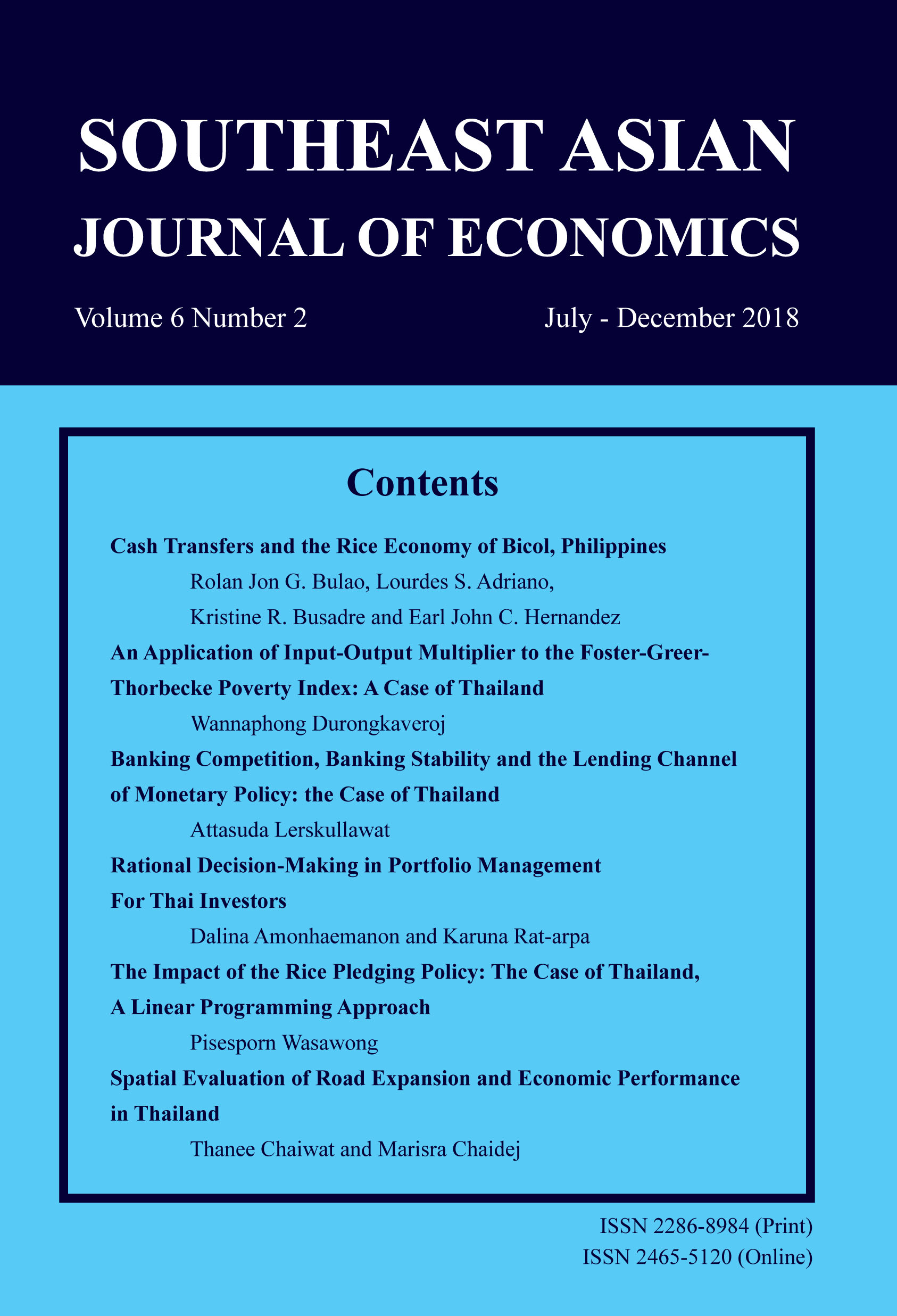Consumption of Material and Experiential Goods, Social Comparison and Subjective Well-being in Cosmopolitan Bangkok
Keywords:
Consumption, Material Goods, Experiential Goods, Social Comparison, Subjective Well-beingAbstract
Empirical evidence of the consumption of material and experiential goods is limited to a few countries, most of which are developed countries. It has been shown that the consumption of life experiences makes people happier than that of material goods. However, these studies typically conduct dichotomous comparisons and do not consider social comparison as a purchase motive. The objective of this paper, thus, is to examine the relationship between consumption of material and experiential goods and subjective well-being, by taking into account if the purchase was made based on social comparison or not. Cross-sectional data were collected in 2015 using probability sampling. The regression results show that the consumption of material goods over a range of prices is negatively related with subjective well-being, while the coefficients on material goods, if purchased not because others bought it, however, are mostly positive. In case of experiential goods, the coefficient is positive at a price range of THB 1,000 to THB 5,000 only, but turns negative at higher prices, irrespective of the purchase motive. In line with the existing literature, experiential goods are less prone to social comparison than material goods. Sub-sample analyses by age groups and gender confirm these results.
Downloads
Published
How to Cite
Issue
Section
License
The submission of a manuscript implies that the paper is an original work and has not been published elsewhere. The author(s) authorize the journal to reproduce or distribute the paper in printed or other electronic forms.







